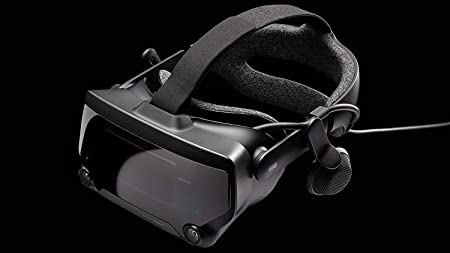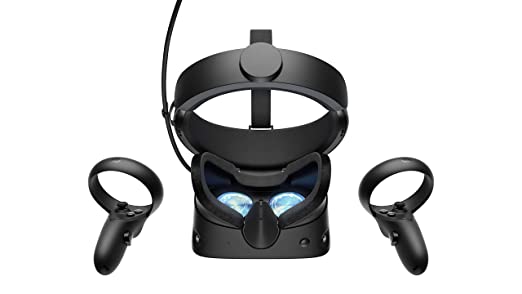Valve Index vs Oculus Rift S
When you compare the Valve Index to the Oculus Rift S you can see which VR Headset is better. Let's take a look of the comparison, and see which model of VR Headset out ontop.
What VR Headset is better?
I recently got the chance to review two virtual reality headsets: the Valve Index and the Oculus Rift S. Both of these devices provide an immersive experience, but there are a few key differences between them that will help you decide which one is right for you.
Starting with the Valve Index, this device has a slightly larger field of view than the Oculus Rift S, coming in at 130° vs 115° for the latter. In addition, it also has higher resolution display with 1440 x 1600 pixels compared to 2560 x 1440 pixels from its competitor. The minimum graphics card required by Valve's headset is Nvidia GeForce GTX 970 / AMD RX480 while Oculus requires Intel i3-6100 / AMD Ryzen 3 1200, FX4350 or greater as well as Nvidia GTX 1050Ti / AMD Radeon RX 470 or greater to run smoothly. Lastly, it comes with room scale tracking and a 120 Hz refresh rate making it suitable for more intense gaming sessions.
The pros of using Valve Index are its larger field of view, higher resolution display and better refresh rate which makes game play smoother. Its main con is that it requires high end graphics cards in order to get the most out of your VR experience.
Now moving on to Oculus Rift S; although this device has lower specs when compared against its competition, it still provides a great VR experience especially if you don't have access to high end hardware since it only requires an Intel i3-6100 processor and AMD Radeon RX 470 graphics card or better. Additionally, both headsets feature room scale 360 tracking technology allowing users to move around their space freely while enjoying their favorite games/activities in virtual reality making them suitable for both casual and hardcore gamers alike.
Overall I'd say that both headsets offer an impressive range of features that make each one unique depending on what type of user they're catering towards so ultimately picking one over the other would come down personal preference in terms of performance versus cost efficiency - however if forced to choose then I would personally go with Valve's Index as I felt like its overall specifications were more suited towards my preferences due to its increased FOV, higher resolution display and higher frame rate - making my VR experiences much more enjoyable!
Specs comparison between the two VR Headsets
| Valve Index | Oculus Rift S | |
|---|---|---|
| Overview | ||
| Brand | Valve | Meta |
| Model Name | Index | Rift S |
| Release Date | 2019 | 2019 |
| Country of Origin | United States | United States |
| Category | PC VR | PC VR |
| Battery Life | 7 h | |
| Display | ||
| Field of View | 130° | 115° |
| Resolution | 1440 × 1600 px | 2560 × 1440 px |
| Refresh Rate | 120 Hz | 80 Hz |
| Display Type | LCD | LCD |
| Minimum Requirements | ||
| Min. CPU Required | Intel i3-6100 / AMD Ryzen 3 1200, FX4350 or greater | |
| Min. Graphics Required | Nvidia GeForce GTX 970 / AMD RX480 | Nvidia GTX 1050Ti / AMD Radeon RX 470 or greater |
| Min. RAM Required | 8 GB | 8 GB |
| Operating Systems | Microsoft Windows | Microsoft Windows |
| Sizing | ||
| Weight | 809 g | 500 g |
| Dimensions | 609.6 x 431.8 x 228.6 mm | |
| Features | ||
| Room Scale? | YES | YES |
| 360 Tracking? | YES | YES |
| Positional Tracking? | YES | YES |
| Front Camera? | YES | YES |
| Eye Tracking? | No | No |
| Usable with Glasses? | YES | YES |
| Cooling System | YES | No |
| Built in Headphones? | YES | YES |
| Built in Microphone? | YES | YES |
| Flip Visor? | YES | YES |
| Voice Command? | No | YES |
| IPD Adjustment? | YES | No |
| Lens to Eye Adjustment? | YES | YES |
| USB? | YES | YES |
| MicroUSB? | No | No |
| Display Port? | No | YES |
| Mini Display Port? | No | YES |
| HDMI? | No | YES |
| MicroSD? | No | No |
| Bluetooth? | YES | YES |
| Wifi? | No | No |

